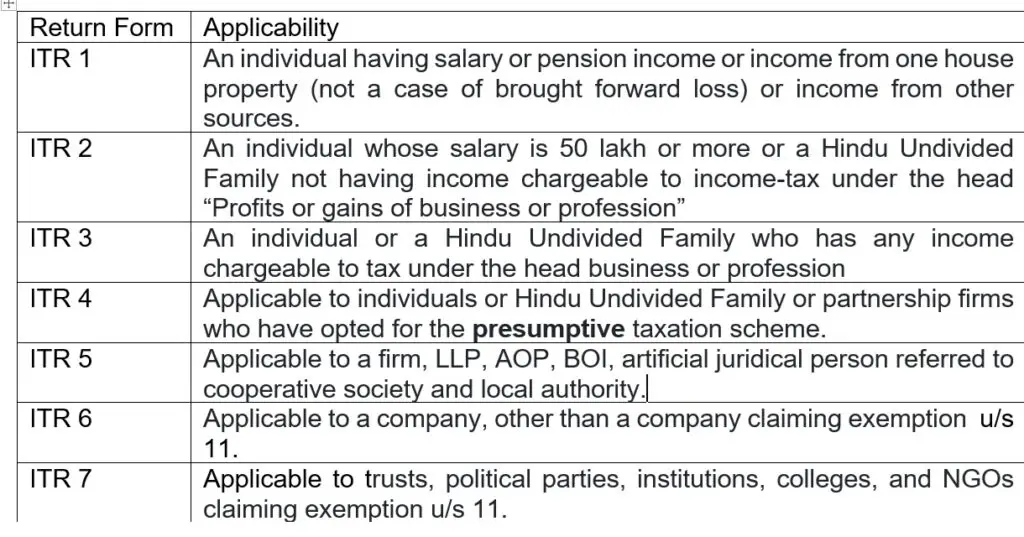Importance of Income Tax Return (ITR)
What is ITR?
ITR stands for Income Tax Return. It is a summary of income earned by a person in a financial year and taxes paid on such income are communicated to the Income-tax Department.
How to file a return of Income?
It can be filed electronically by logging into the e-filing portal of income tax through the PAN of the applicant.
E-filing can be done from any place at any time, and it saves time and effort.
Is it necessary to attach any documents at the time of filing of return of income?
You are not required to attach any documents, However, proof of Investment, TDS certificate or form 16, etc. should be retained and can be produced to the tax authorities at the time of assessment and enquiry, etc.
How can I pay my tax liability?
Tax can be paid by logging into your IT account using the e-Pay Tax facility.
What are the benefits of filing a return of income?
Filing of return is your duty and contribution to the development of the nation. By filing of return, you can avoid penalty, interest, prosecution, claim your tax refund, and Carry- forward losses and it validates credit worthiness before the bank for a loan.
What are the due dates for filing of return of income/loss?
A person (including partner of firm) whose accounts are to be audited: 31st October of the assessment year.
Any other person: 31st July of the assessment year.
What if I fail to file my ITR within the due dates?
Late filing fees shall be payable of INR 5,000 if the return is furnished after the due date. However, late fees of INR 1,000 shall be payable if the total income of the person does not exceed five lakhs.
How can I revise my return?
A return of income can be revised if you find any mistake, omission, or any wrong statement. A return can be revised on or before 31st December of the assessment year or before the completion of the assessment; whichever is earlier.
Can I claim deductions that are not reflected in the form 16?
Yes, you can claim it in the return form if you are otherwise eligible to claim the same.
Why do file a return if all the taxes and interest have been paid and there is no refund due?
Filing of return of income is a self-declaration of your income and tax liability. Only upon the filing of a return of income, does the government assume rights over the taxes paid by you. Filing of return of income is critical for this process and hence, has been made mandatory. Failure will attract non-compliance with income tax law.
Am I liable for any criminal prosecution, if I don’t file my income tax return?
If your income is taxable, then non-payment of tax will attract interest, penalty, and arrest/imprisonment. Imprisonment can be from 3 months to 2 years (when the tax sought to be evaded exceeds INR. 25,00,000 the punishment could be 6 months to 7 years).
How many types of forms to file ITR?

